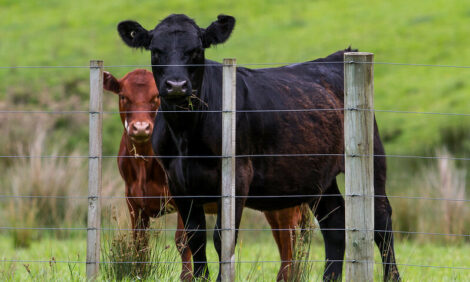



Lumpy skin disease hits Italy and France for first time - WOAH
WOAH urges vigilance, counters misinformation on LSDThe World Organisation for Animal Health (WOAH) acknowledges the rapid official notifications of two outbreaks of Lumpy skin disease (LSD) in Italy and France, as well as the details provided through their follow up reports. This marks the first-ever occurrence of the disease in these countries, highlighting the urgent need for heightened surveillance and coordinated response. Both countries have reported that they are already implementing measures to contain the disease in line with international standards.
From 2016 to 2024, WOAH with the Food and Agriculture Organization of the United Nations and the European Union, supported the coordination of a standing group of expert for LSD in South-East Europe until the disease was successfully eradicated, thanks to effective vaccination and regional coordination. WOAH also continues to monitor the epidemiological situation in Africa, where the disease is endemic, as well as in the Middle East and Asia.
LSD is a highly contagious vector-borne viral disease that primarily affects cattle, water buffaloes and certain wild ruminants. Beyond its impact on animal health and welfare, LSD can cause significant economic losses for farmers due to reduced milk production, weight loss and reproductive impairment. The disease is not zoonotic and therefore does not pose a threat to human health neither by direct contact with infected animals nor through the consumption of animal products from infected animals such as milk or meat.
The virus is transmitted via insects such as biting flies and mosquitoes. The movement of infected animals to free areas is mostly responsible for long-distance spread. As highlighted in the recent State of the World’s Animal Health report, early detection and rapid response, including movement control and vaccination with high quality vaccines remain critical to controlling LSD outbreaks. Cross-border and cross-disciplinary collaboration is essential for effective prevention and control.
WOAH is actively monitoring and countering misinformation, which can undermine response efforts and cause unnecessary harm. Most notably, false claims around vaccines can erode public trust in disease control measures and distract from their benefits. Misinformation around the safety of milk for human consumption can equally promote consumer doubts, impacting market stability.
WOAH urges all stakeholders – especially those in animal health and agriculture – to rely on trusted, science-based information. Our FAQs and technical resources are designed to clarify common doubts and provide guidance tailored to veterinarians, farmers and decision-makers.
To enhance coordination, WOAH remains in close contact with its Reference laboratory network and Members sharing scientific advice and knowledge through webinars and other modes of exchanges to review ongoing measures and plan next steps.



